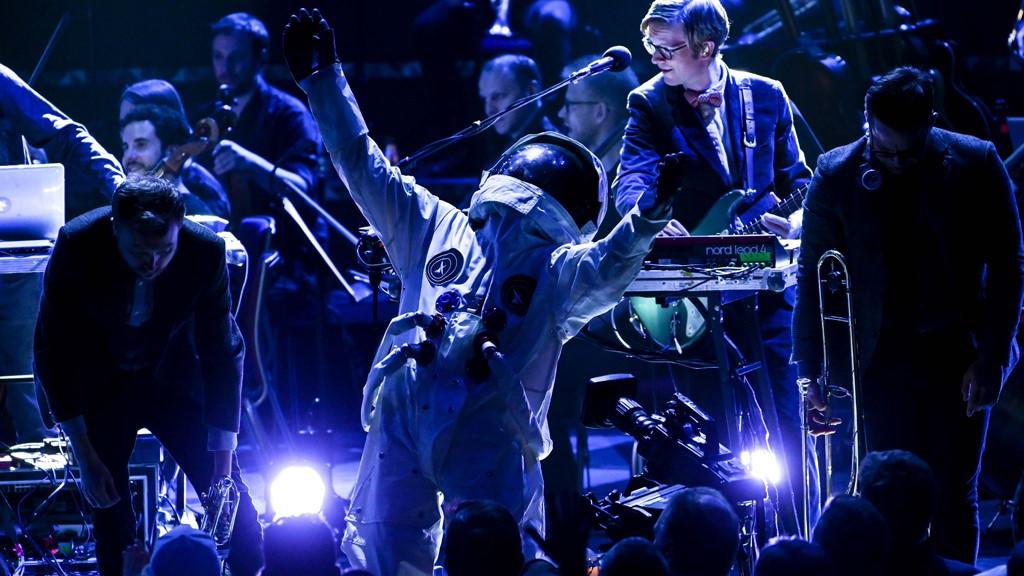'Queer girl with a nose ring' rocks the Last Night of the Proms
- Published
Self-professed "queer girl with a nose ring" Jamie Barton was the undisputed star of the Last Night of the Proms.
The US mezzo-soprano, who took to the stage waving a Pride flag, said her mission was to "unify the audience".
And, with a sensuous reading of Bizet's Habañera and a wistful Over The Rainbow, she achieved her goal.
"We are witnessing something rather remarkable," said Radio 3's Petroc Trelawney. "That moment an audience falls in love with a singer."
His co-presenter Georgia Mann praised Barton's "heavenly warmth" and said her voice was "so rich, it's like bathing in a really beautiful bubble bath".
"There was a wave of love and acceptance and appreciation," observed conductor Sakari Oramo, following her performance at London's Royal Albert Hall.
Viewers at home seemed to agree.
Allow X content?
This article contains content provided by X. We ask for your permission before anything is loaded, as they may be using cookies and other technologies. You may want to read X’s cookie policy, external and privacy policy, external before accepting. To view this content choose ‘accept and continue’.

Allow X content?
This article contains content provided by X. We ask for your permission before anything is loaded, as they may be using cookies and other technologies. You may want to read X’s cookie policy, external and privacy policy, external before accepting. To view this content choose ‘accept and continue’.

Allow X content?
This article contains content provided by X. We ask for your permission before anything is loaded, as they may be using cookies and other technologies. You may want to read X’s cookie policy, external and privacy policy, external before accepting. To view this content choose ‘accept and continue’.

Born in the small rural town of Rome, Georgia, Barton was raised on Bluegrass, The Grateful Dead and the Beatles.
She jokingly describes her operatic career as "an act of musical rebellion" against her parents, triggered by a performance of Aida at Atlanta Opera.
After studying vocals at St Louis and Houston, her big breakthrough came at the 2013 Cardiff Singer of the World competition. Barton won both the main and the subsidiary song prize - foreshadowing the versatility she displayed at the Proms, where she was equally at home with opera, Gershwin and, of course, Rule Britannia.
The 37-year-old, who revealed her bisexuality on Twitter on National Coming Out Day 2014, said she wanted to use the Proms to make "a very clear statement of Pride".
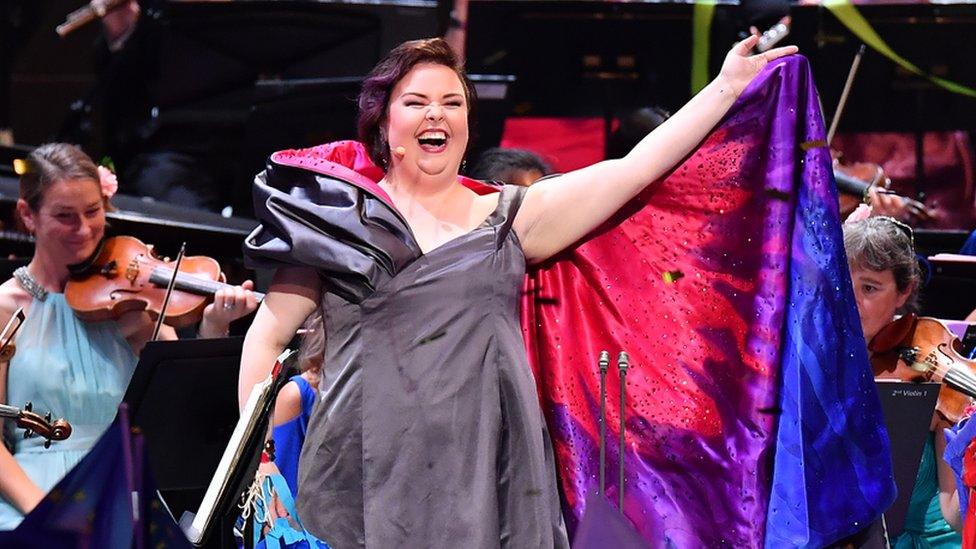
Barton's gown highlighted the colours of the bisexual Pride flag
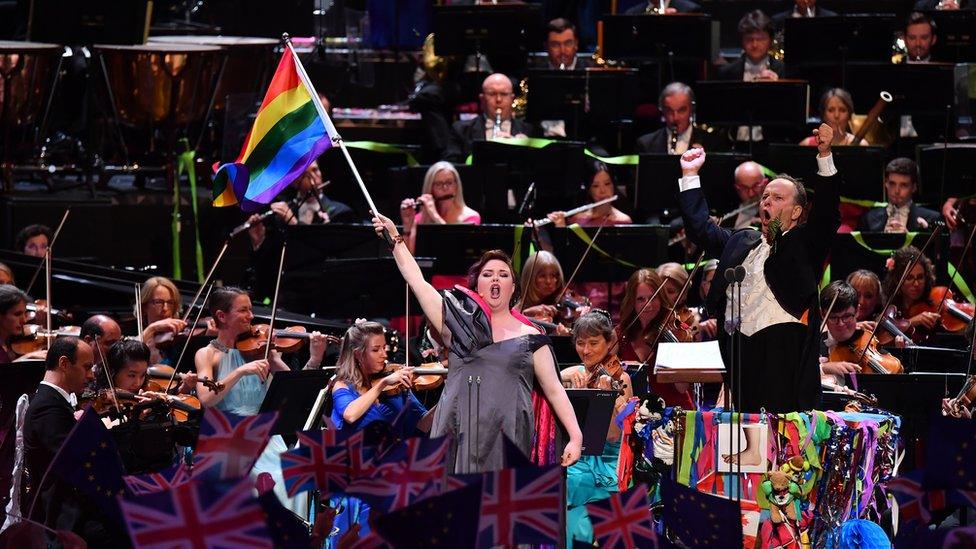
The dress was designed by Jessica Jahn and built by Donna Langman
"It's not only a very important thing to me personally, but it's also something I think unifies the audience," she said.
"It's not just queer pride, it's a connective celebration of people being exactly who they are and loving who they are. And I'm honoured to get to lead that."
As well as singing Judy Garland's gay anthem ("it felt a little too on-brand not to do"), Barton wore a gown featuring the colours of the bisexual flag - lavender, pink and blue - as "a statement of the pride in my community".
Her messages of tolerance and inclusivity lent a modern touch to the flag-waving frolics of the Proms, but the touchstones of the Last Night remained as stoically immutable as ever.
The audience bobbed to the Hornpipe, they linked arms to Auld Lang Syne, and they set off party poppers at comically inappropriate moments.
The programme also included nods to the main themes of this year's Proms: Laura Mvula's Sing To The Moon marked the 50th anniversary of the lunar landings; and a delicately beautiful version of Elgar's Sospiri marked the 150th anniversary of Proms co-founder Sir Henry Wood, who premiered the piece in 1914, just nine days after Britain declared war.
Across the UK, Proms In The Park events allowed fans to follow the action on big screens, as well as enjoying live performances from the likes of Barry Manilow, Barbara Dickson, Jack Savoretti and Susan Boyle.
The best bits of the 2019 Proms in four minutes
As the concert ended, Oramo, who was conducting the Last Night for his fourth time, paid tribute to live music audiences.
"The explosion of social media in our lives has caused our attention span to decrease," he said from a podium decked in streamers.
"So why have you lovely people, here tonight, chosen to come and hear live music? Why do you, our radio and TV audiences, switch on?
"I hope it's because it's a wonderful experience to come to a concert and listen with complete concentration to an orchestra and chorus perform live."
His comments came at the close of a Proms season that encompassed 85 concerts in just 58 days.
Highlights included a soul-stirring tribute to Nina Simone, a musical recreation of the moon landings, and a performance of Mendelssohn's First Piano Concerto, played on Queen Victoria's own piano.
More than 300,000 concert-goers attended the festival, with one in five purchasing on-the-day tickets for £6.
The Proms will return for their 126th season on 17 July, 2020.

Follow us on Facebook, external, or on Twitter @BBCNewsEnts, external. If you have a story suggestion email entertainment.news@bbc.co.uk, external.
- Published14 September 2019
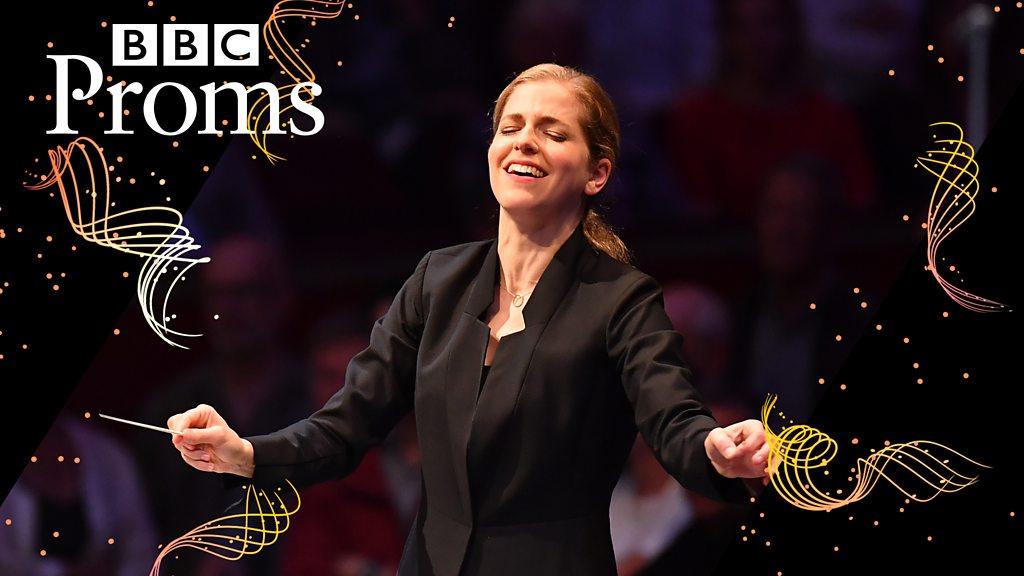
- Published19 July 2019
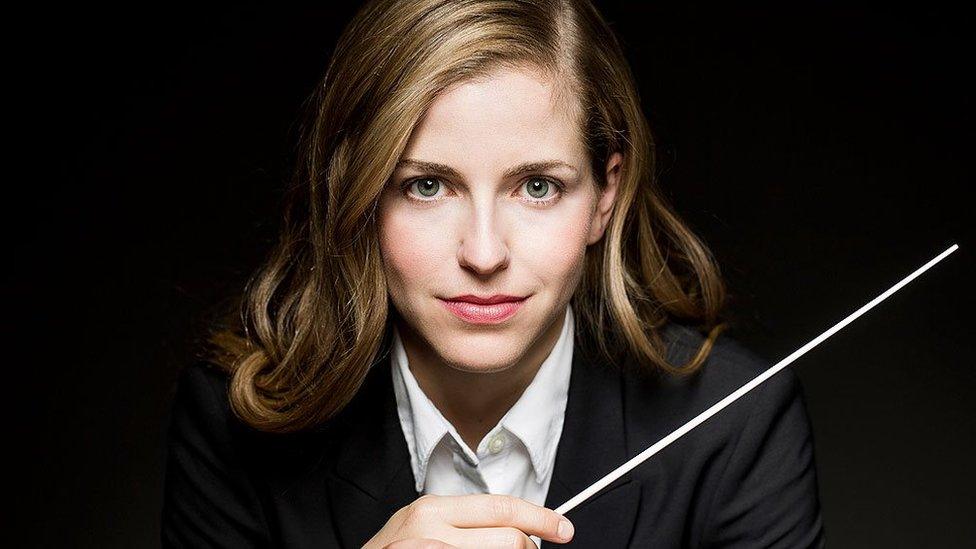
- Published26 July 2019
